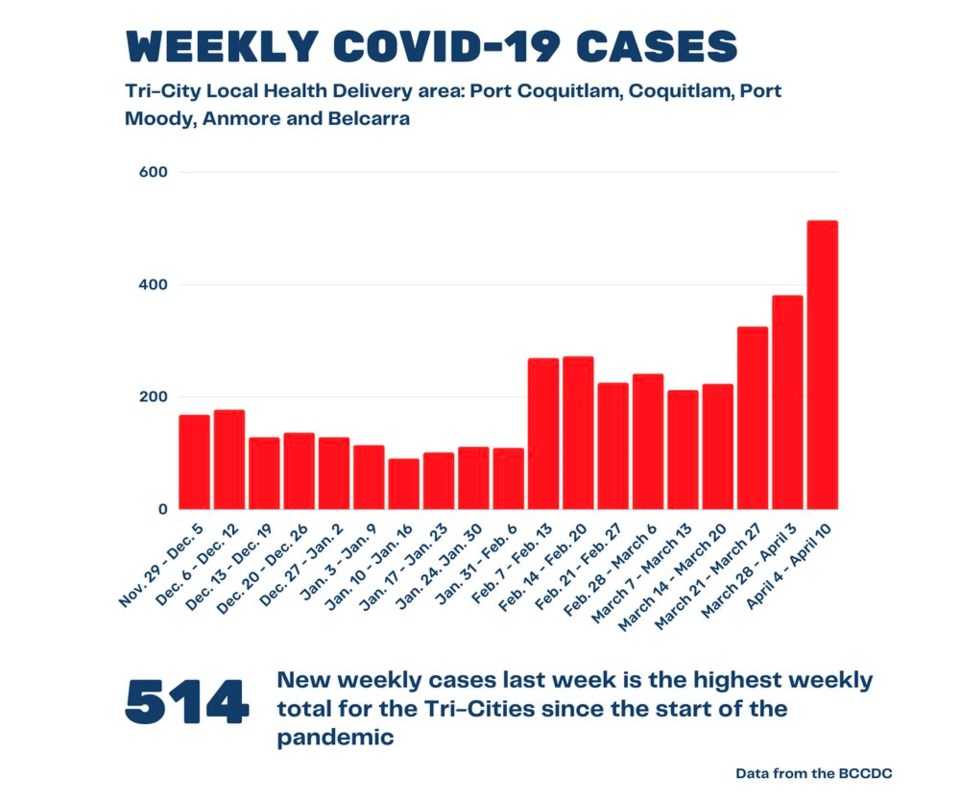The Tri-Cities has seen another record bump in weekly COVID-19 cases, surging 35% last week to 514 cases, a five-fold increase from weekly totals reported in January.
The cases, reported by the BC Centre for Disease Control Thursday, mark a new record for the region as it surges ahead of neighbouring municipalities like Burnaby and Maple Ridge.
The spread of the virus comes as Fraser Health has flagged 14 schools across the region for COVID-19 exposures since the return from spring break.
The virus has also returned to a long-term care home in Coquitlam first hit by COVID-19 in May. At least five residents have tested positive for the coronavirus, though Fraser Health would not reveal to the Tri-City News how the virus entered the facility despite widespread vaccination efforts targeting seniors living in group facilities.
Province-wide, variants of concern now make up more than half of all reported cases, and the rise of the P.1 variant, first reported in Japan but later identified in Brazil, has now been identified in 1,529 cases, 555 since April 9.
The P.1 variant “may be able to re-infect people who have had COVID-19,” warns the BCCDC. “Some current treatments and vaccines may not work as well on cases of this variant.”
Modelling released Wednesday shows unchecked growth of P.1 and B.1.1.7, or U.K. variant, could spin cases out of control by the end of April.
Hospitalizations reached record levels across B.C. Wednesday, and the modelling of the variants projects hospitalized cases could overwhelm capacity in May unless transmission is brought under control, according to the BC COVID-19 Modelling Group, a collection of infectious disease experts and mathematical modellers drawn primarily from SFU and UBC.
B.C.’s vaccination drive, suggests the modelling, is indeed in a race against the variants.
The province's “vaccination program needs to swiftly target those with the most contacts so that infection and hospitalization rates can be reduced over the next 2-3 months,” write the modellers.
But B.C. officials are currently considering more than vaccine strategy to tamp down transmission of the virus.
On Tuesday, Premier John Horgan said travel restrictions were “on the table,” adding his cabinet was weighing the status of bookings at hotels, bed and breakfasts and camping sites.
Horgan said he spoke to Alberta Premier Jason Kenney on Monday about the pandemic and their mutual concerns about travel between the provinces and the consequences that is having on case counts.
The premier added he was looking Thursday's COVID-19 update, which will include modelling from the BCCDC, for a better sense of where the province stands.
Meanwhile, Prime Minister Justin Trudeau told CBC Radio Wednesday that he supports restricting inter-provincial travel “to keep people safe.”
— With files from the Canadian Press




